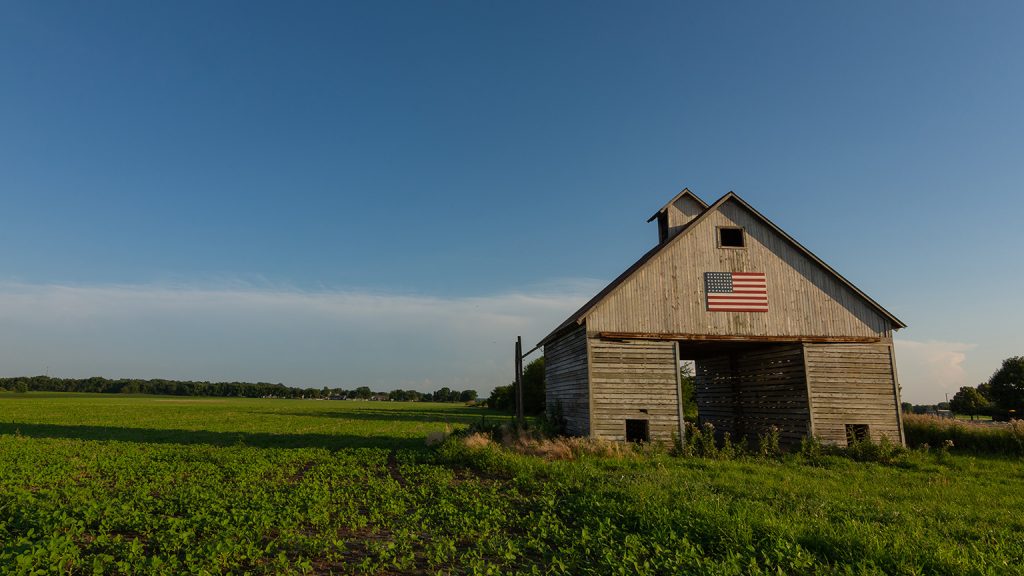Progressives within agriculture are mounting an aggressive push to keep former Sen. Heidi Heitkamp from being selected to serve as Agriculture Secretary in a Biden administration.
The tension is emerging right as Rep. Marcia Fudge (D-Ohio) has begun publicly gunning for the top job at USDA, a sprawling $150 billion department that feeds millions of low-income households, oversees agriculture policy and supports the farm economy.
Heitkamp has long been seen as the leading contender for the position, given her moderate politics and friendly relationship with the agriculture sector. But a growing coalition is now furiously organizing behind the scenes to shoot down her candidacy before it goes anywhere, arguing that she’s too conservative and far too cozy with the fossil fuel industry and corporate agribusiness.
“There will be a big fight on Heitkamp if Biden puts her name forward,” said Kari Hamerschlag, deputy director of the food and agriculture program at Friends of the Earth, a progressive environmental nonprofit that’s been outspoken against Heitkamp.
A coalition of more than a dozen groups is preparing to publicly oppose Heitkamp in the coming days. They include Farm Action Fund, Organic Consumers Association, HEAL Food Alliance, Humane Society Legislative Fund, Food and Water Watch, People’s Action, Women Food and Agriculture Network and Center for Food Safety.
More than 150 food and agriculture organizations on Tuesday will ask the Biden transition team to remove Heitkamp from consideration as USDA secretary.
“Heitkamp is the wrong choice for the USDA because she has aligned herself with corporate agribusiness at the expense of family farmers, supports fossil fuel interests, and holds views that are out of step with the Democratic Party and the majority of Americans,” reads the letter to the team, whose signers include Center for Biological Diversity, Open Markets and Farmworker Justice.
Most of the nonprofits going public against the North Dakota Democrat are on the left-flank of even the most progressive food and agriculture circles, but the divisions about Heitkamp run deep. The National Farmers Union, for example, which is not part of this organizing effort, is facing its own divisions among state leaders about whether to get behind the former senator.
A spokesperson for Heitkamp said she was unavailable to comment for this story.
On a recent ABC “This Week”, Heitkamp sparred with Yvette Simpson, CEO of Democracy for America, a progressive group, over how the Democratic Party should move forward.
Heitkamp argued for a moderate approach in tackling big problems. She noted, for example, that most North Dakota voters do see climate change as a problem but they “get concerned when they see radical ideas being introduced to completely upend the energy system.”
“There is a place you can go in solving these problems that speaks to all sides and does not radicalize important issues in this country,” she said.
Simpson pushed back forcefully: “You called the base of the Democratic Party — progressives — radical … that’s a Republican talking point.”
The left-wing of the progressive agriculture universe began to become alarmed over the summer as word spread that former Agriculture Secretary Tom Vilsack had put his weight behind Heitkamp.
Asked to comment this week, Vilsack said that he has no favorites in the race for Agriculture secretary. He said that all the candidates that have been mentioned are qualified and could do a good job.
Yet the fact that Libby Schneider, a longtime staffer for the North Dakota Democrat who ran her unsuccessful reelection campaign in 2018, is now the rural political director at the DNC further fueled the perception among aggies that Heitkamp-world was positioned to become the next lead on agriculture within the party.
Heitkamp has herself been very vocal about trying to get the Democratic party to engage more on rural issues. She and former Sen. Joe Donnelly in early 2019 launched One Country, a nonprofit dedicated to helping Democrats build back some traction in rural counties after losing by huge margins in 2016.
Heitkamp and Fudge are considered to be in the top tier of candidates vying for the position, but other names have been floated by outsiders as potential contenders, like Karen Ross, California’s secretary of agriculture, and Sen. Amy Klobuchar (D-Minn.), while some in the industry are hoping Biden might consider House Agriculture Chair Collin Peterson after he lost his reelection bid. Montana Gov. Steve Bullock has also started coming up more after he lost his bid for Senate.
Having run a state government has previously been seen as a good qualification for running USDA, which has nearly 100,000 employees and operates in every state and county. The last four agriculture secretaries have been former governors.
Fudge, for her part, has a growing list of allies building support for her, some part of an organized effort. Their message is that the Ohio Democrat’s work extends well beyond defending federal nutrition programs. The congresswoman’s district is 100 percent urban, but she’s long worked with major agriculture groups because of her position on the agriculture committee and that agriculture is Ohio’s top industry.
“Rep. Fudge has tremendous command of ag issues,” said Tami Buckner, a longtime food and agriculture industry lobbyist and partner at Michael Best Strategies, who has known the congresswoman since she was mayor of Warrensville Heights in the early 2000s. “Her political antennae is second to none.”
Fudge also has the backing of a powerful ally: Democratic majority whip Jim Clyburn, who has spoken to the Biden landing team about the post on her behalf.
Fudge going on the record last week about her intentions was seen as a bold move by Washington insiders. The congresswoman herself was not shy about touting her qualifications.
“I don’t know that there are very many people, whether they be in the house or the Senate that actually have the breadth of experience in ag that I have,” Fudge told POLITICO in an exclusive interview.
She said she had not talked to the transition apparatus directly about the job. “That’s their work. And I want to leave their work to them,” she said.
Yet Fudge faces one tricky roadblock that Heitkamp does not: Hill Democrats will have fewer chances to be tapped by the Biden administration given the election outcome that narrowed their margin in the House. While Fudge’s seat, located in and around Cleveland, is likely to be filled by another Democrat, the amount of time that it’s open would give Democrats one less number in tight votes. Heitkamp was defeated in 2018.
As a former senator from North Dakota, Heitkamp went to bat for the popular crops in her state, namely, soybeans, sugarbeets, wheat and corn. And while out of office, Heitkamp has focused her messaging on how the Trump administration’s trade wars have hurt those sectors.
But Heitkamp’s support for several Trump cabinet members while she was in the Senate is a major point of concern for her critics.
“Heitkamp’s got two years of bashing Trump’s trade policies yet she voted for [Robert] Lighthizer, who’s the architect of Trump’s trade policies,” said Matt Barron, a Democratic consultant who specializes in rural politics. “It’s like hypocrite Heidi.”
Heitkamp was also one of three Democrats to vote for EPA Administrator Andrew Wheeler’s Senate confirmation, and sided with Republicans to confirm former EPA Administrator Scott Pruitt.
While Heitkamp was fighting to keep her Senate seat — which she ultimately lost to Sen. Kevin Cramer — she touted that she voted with Trump more than half the time.
Environmentalists also flag Heitkamp’s support for the Keystone XL pipeline as a red flag, deepening their worries that she would favor corporations at the expense of USDA’s conservation efforts.
One of the clearest arguments they make against Heitkamp is that she was once in contention for a spot in Trump’s Cabinet.
“She’s so far right she was on Trump’s list,” said Navina Khanna, co-founder and director of the HEAL Food Alliance, a multi-sector and multi-racial coalition that includes a long list of nonprofits, including Food Chain Workers Alliance and the Union for Concerned Scientists.
As food and agriculture lobbyists watch the horse race for USDA secretary with great interest, there’s a new sense that perhaps the post is not quite as low-profile as it has been.
“Anybody watching this space should be thrilled that there is such stiff competition to fill the secretary job,” said Eric Kessler, founder of philanthropic consulting firm Arabella Advisors, who is credited with recruiting Vilsack to serve in the Obama Cabinet more than a decade ago.
Kessler, for his part, praises the former Iowa governor for raising the visibility of the department because he helped show “how the department touches every American’s life every day, from farm to fork.”



